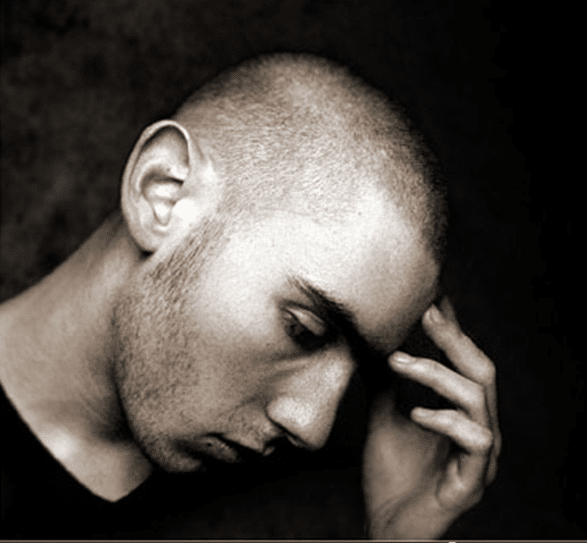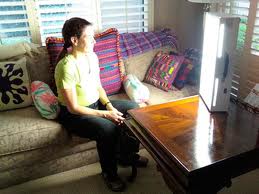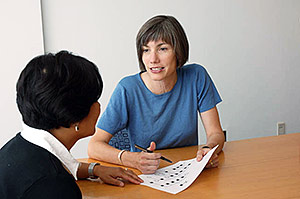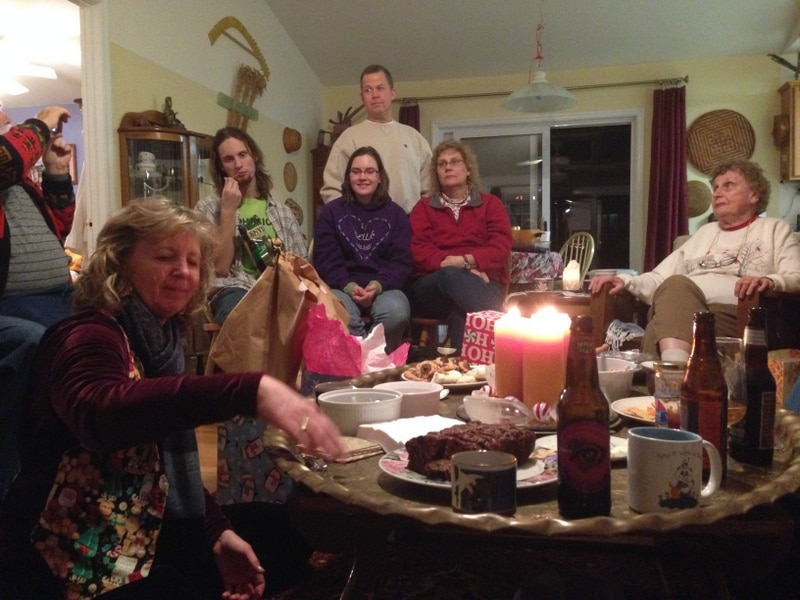Usually, people who tend toward depression are very sensitive. As fall and winter pull us into our inner world of feelings, thoughts, intuitions, and sensations, it brings us closer to the subtleties of how we tick. We miss the light of spring and summer where everything is bright, clear and extroverted.
 I commonly hear clients, friends, colleagues, and people in general talking about more depressive feelings and lower energy in the winter.
I commonly hear clients, friends, colleagues, and people in general talking about more depressive feelings and lower energy in the winter.
In nature, plants go dormant or die, animals hibernate or slow their activity down. As a society we ramp up our already busy life at the darkest, most introverted time of the year.
We have a real conundrum. A part of us wants to participate in the holidays with gift giving, parties and travel but another part of ourself wants to stay home and take a nap, maybe read a book or do a little art project. This conflict with our instincts to slow down is one aspect of winter depression.
Bridging the gap between modern society and the rhythms of nature can be sorted out. This sorting is emotional and behavioral.
What is Seasonal Affective Disorder?
Psychologically “affect” means mood.
Seasonally, we feel “out of order” when our moods begin to take over. We can feel overwhelmed with the “winter blues” and “grays” and even “blacks”. There are less light feelings and this difference needs particular attention.
Our moods, our feelings and our attitudes change with the seasons. We feel brighter affects in the summer with the long days of sun light and heat but in the winter we feel the darker affects that come with the darkness and the cold.
Seasonal Affective Disorder Symptoms:
The medical diagnosis for SAD, Seasonal Affective Disorder is considered a major depressive disorder. “In the last 2 years, two major depressive episodes have occurred”.
What is a Major Depressive Disorder?
 A. Five (or more) of the following symptoms have been present during the same 2-week period and represent a change from previous functioning; at least one of the symptoms is either
A. Five (or more) of the following symptoms have been present during the same 2-week period and represent a change from previous functioning; at least one of the symptoms is either
(1) depressed mood or
(2) loss of interest or pleasure.
Note: Do not include symptoms that are clearly attributable to another medical condition.
1. Depressed mood most of the day, nearly every day, as indicated by either subjective report (e.g., feels sad, empty, or hopeless) or observation made by others (e.g. appears tearful). (Note: In children and adolescents, can be irritable mood.)
2. Markedly diminished interest or pleasure in all, or almost all, activities most of the day, nearly every day (as indicated by either subjective account or observation).
3. Significant weight loss when not dieting or weight gain (e.g., a change of more than 5% of body weight in a month), or decrease or increase in appetite nearly every day. (Note: In children, consider failure to make expected weight gain.)
4. Insomnia or hypersomnia nearly every day.
5. Psychomotor agitation or retardation nearly every day (observable by others; not merely subjective feelings of restlessness or being slowed down).
6. Fatigue or loss of energy nearly every day.
7. Feelings of worthlessness or excessive or inappropriate guilt (which may be delusional) nearly every day (not merely self-reproach or guilt about being sick).
8. Diminished ability to think or concentrate, or indecisiveness, nearly every day (either by subjective account or as observed by others).
9. Recurrent thoughts of death (not just fear of dying), recurrent suicidal ideation without a specific plan, or a suicide attempt or a specific plan for committing suicide.
B. The symptoms cause clinically significant distress or impairment in social, occupational, or other important areas of functioning.
C. The episode is not attributable to the physiological effects of a substance or another medical condition.
Bracing for Seasonal Depression
The good news is that we can prepare for a seasonal depression. Where as depression can come and go on its own time schedule. This gives us a chance to prepare and study ourselves in this change from lighter affects to darker affects that can be more confusing but they also have great potential for more order in our lives instead of disorder. Therefore, we can better navigate light and dark aspects of ourselves as the seasons change.
 Our ancient traditions show us that this decent into the darkness has always been a part of our human condition with the potential of a bright outcome.
Our ancient traditions show us that this decent into the darkness has always been a part of our human condition with the potential of a bright outcome.
In Greek mythology, Persephone made the descent into Hades in the Fall/Winter and returned in the Spring with peace and paradox.
“When it is dark enough, you can see the stars.”
Seasonal Affective Disorder Treatment
As I have said in previous articles, we need to treat both symptoms and the source of the symptoms. Since SAD is a state of depression, we need to treat it as a depression with a few specific interventions. We can treat the symptoms behaviorally by changing our lifestyle in certain ways and medically by incorporating medication, acupuncture, and diet changes.
Behavioral and Medical
As we know, exercise is one of the best interventions for depression but exercise in the winter time needs to be thought through. When it is cold outside it can even be difficult to take a walk or easily get to a yoga class, exercise gym, or indoor swimming pool. But we got to do something!
“Any exercise is good exercise” when it come to depression.
 Therefore, we need to ask ourselves, “What physical activity of all my possibilities is the most fun?” Then do it. This can be anything that you will do that is physical.
Therefore, we need to ask ourselves, “What physical activity of all my possibilities is the most fun?” Then do it. This can be anything that you will do that is physical.
Some people have found support through seasonal affective disorder lights which mimic sunlight. If it works for you, great!
Others, need medications that can be reduced or stopped when it is no longer needed in the Spring and Summer. I go into further detail about medication in some other articles. It can really help for some, but for others the side effects are too much of a trade off.
Diet is like exercise, we have to do something with the amount of certain foods and the amount of exercise. Amount, amount, amount is the magic formula. The holiday season is usually the time to take it to the limit. We all know, too much alcohol, sugar and fat just does not help with depression. We would like it to but it doesn’t.
Some people use acupuncture and herbs with or without antidepressants. This can give support to one’s over all body/mind connection.
Meditation is very good for managing symptoms and giving the strength to approach the deeper relief of underlying emotional suffering, especially when used in conjunction with psychotherapy.
Psychotherapy treats the source of depression and gives strategies to minimize the symptoms. Finding the therapist that is right for you is the next step.
Treating the Sources of Depression
 As I pointed out in the beginning, the fall and winter months are the most introverted, most introspective times of the year. It is the best time for psychotherapy, meditation, self reflection and artistic expression through writing, poetry, painting, drawing, crafts, etc.
As I pointed out in the beginning, the fall and winter months are the most introverted, most introspective times of the year. It is the best time for psychotherapy, meditation, self reflection and artistic expression through writing, poetry, painting, drawing, crafts, etc.
It is also a time when family interactions begin triggering feelings, moods, memories and family dynamics that can seem impossible to do anything about. Add that on top of increased holiday activities and of course some depression comes into play.
For example, this is a common dialogue that I have had many times with clients as the fall and winter season begins. It goes something like this:
Me: How are you doing with the holidays coming up?
Client: You know I love my parents but I just dread getting together with them. The same is true of my sister too. She always finds a way to criticize me and I never see it coming.
Me: It seems a part of you wants to be with your family and another part wants to get out of there.
C: Yes, sometimes it feels like my duty to get together with them. If I don’t go I feel guilty. When I do go, I feel depressed and angry when I leave. I always fool myself thinking it will be different this year, that they will listen to me or actually care about what I am doing and not just have the conversation center around them. I just never feel good enough with them.
M: Do you think they have the capacity to understand you and be there for you?
C: What do mean by that?
M: Do you think they are emotionally grown up enough?
C: No, they always seem to guilt trip me someway or make it about them.
M: So you are trying to get something that they may not be able to provide. It sounds frustrating and helpless.
C: Exactly, I want to be closer but it feels like that will never happen. I end up feeling exhausted and so disappointed.
What can I do?
 M: Suffering what we feel and the circumstances of our life is all anyone of us can do. We can talk about ways to talk to your parents, ways that you could set limits with them, even though you feel guilty.
M: Suffering what we feel and the circumstances of our life is all anyone of us can do. We can talk about ways to talk to your parents, ways that you could set limits with them, even though you feel guilty.
C: Why would I want to feel feelings that are so painful for a connection that may not be possible? I feel crazy and torn apart.
M: To bury them creates more depression, right?
C: I have to admit I have always felt this struggle with my family, longing for their attention and love but mostly getting their judgements.
M: I see what you mean about feeling torn apart. Grieving our reality is how we get our soul back. We see it specifically, when someone dies.
C: I feel like I would die if I suffer what is true. I also feel like I might loose what I have with my family. But I hear what you are saying. I would be more myself, standing on my own two feet. I don’t have to be mean with them or push them away. I can be with them without trying to get what they can’t provide.
Me: Yes
C: For some reason I feel worse and better now. I know what you are saying is true, just not easy.
M: For sure.
Feeling, experiencing, grieving and expressing this deep emotional pain is how transformation takes place. Everyone has this to varying degrees. It is part of being socialized with varying degrees of ignorance and wisdom. We imagine the pain to be worse than it is. But when we face it, we find out that it will not kill us. It is just feeling and sensation. There is more to us than we could imagine. These are feelings left over from a long time ago, that have yet to be freed.
As we do this work, our family and life are less of a bother and we can make better choices about how we move around in this world. Maybe even slow down and redesign our holiday season.
For More on Depression
Dealing with Depression, Lost Pieces of the Soul
Bipolar 1, Bipolar 2; Mania and Depression
Parenting a Child with Depression, 9 of the Symptoms
For more on meditation:
Three Meditation Techniques for Therapy
Antidepressants vs Meditation: Healing the Symptom and Root Cause of Unhappiness
